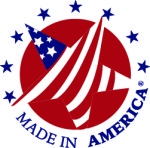Reshoring & Sustainability: David’s Lesson by Zach Sudnick
 The story of David and Goliath is a familiar tale taught to many children in the early stages of their life. In it, we see a young boy, David, use his speed and cunning in order to defeat his larger, more sluggish opponent. In some cases, we learn, the key to success is not brute strength, but rather, it is our agility and our ability to think on our feet. Today, we find very similar circumstances within the setting of modern commercial operations.
The story of David and Goliath is a familiar tale taught to many children in the early stages of their life. In it, we see a young boy, David, use his speed and cunning in order to defeat his larger, more sluggish opponent. In some cases, we learn, the key to success is not brute strength, but rather, it is our agility and our ability to think on our feet. Today, we find very similar circumstances within the setting of modern commercial operations.
Gone are the days of simple, straightforward manufacturing and supply chain processes. In present-day business decision making, executives are faced with the layers and layers of complexity which have been brought along by a global marketplace. Foreign manufacturing alternatives found in the process of offshoring have only exacerbated the issue of complexity. Yet, as the financial landscape shifts, so too do the options we have for creating products of value and competing globally from a centralized position.
Agile manufacturing, a philosophy that involves utilizing lean operational processes in order to accomplish rapid responses to consumer needs has provided a new path forward at the intersection of reshoring and sustainability. In mature markets with high labor costs such as the United States, agile manufacturing can provide a competitive advantage for firms who create their products locally. By leveraging proximity to the market and streamlined lean manufacturing, agile firms can respond to consumers in an unprecedented and accelerated fashion. Almost as quickly as consumers are demanding alterations and directional shifts in the business model, the very change is occurring within the firm. This level of efficiency not only reduces the environmental footprint of an organization through waste reduction, but it offers economic backing for relocating manufacturing back to the United States. While agile firms create more sustainable operations through the elimination of unnecessary resource usage, they also provide accelerated innovation in their products and sourcing. This means that as the consumer base for environmentally responsible products and services expands, local agile firms can more readily respond to the call. In a time of rapid and unforeseen changes, an age-old narrative still holds weight in teaching us how to tackle our greatest challenges. By learning David’s lesson, organizations can once again bring their manufacturing onshore, becoming more responsive and more sustainable in the process.
 Zach Sudnick is currently pursuing a Masters of Business Administration at the University of Kentucky. He holds BA degrees in Individualized Studies, Sustainability, and Energy from Miami University.
Zach Sudnick is currently pursuing a Masters of Business Administration at the University of Kentucky. He holds BA degrees in Individualized Studies, Sustainability, and Energy from Miami University.
Zach has worked as an intern for a number of environmentally-focused non-profit organizations and government agencies and has held numerous leadership positions within community-based and sustainability-centered student organizations. In his MBA program, Zach will be working as a business consultant for a non-profit food bank with the mission of distributing food to the hungry throughout the state of Kentucky.



